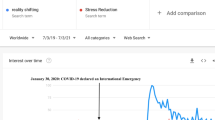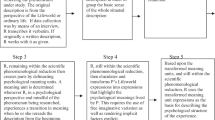Abstract
The urgency of the problem of how to learn from the relatively recent past in order not to repeat its devastating effects, a problem that revolves around the ethics of memory and history, has combined with an awareness that later generations of victims and perpetrators—the “post” generations—may find themselves inhibited in relation to moving forwards because they are not truly “post” at all. It is as if they are haunted by the experiences of their predecessors, which is passed on in some way through stories and selective silences, as well as through the older generation’s ways of handling themselves and the personal and cultural representations of their situation. This article presents a psychoanalytic reading of the postmemory literature, drawing on second generation Holocaust literature and in particular rendering the distinction between postmemory as a mode of traumatic identification and postmemorial work as a form of working through. Active memorial work that allows repetitions to be turned into processes of recovery is essential for the laying of ghosts to rest.
Similar content being viewed by others
References
Baraitser, L. (2017). Enduring time. London: Bloomsbury.
Baum, D. (2017). The Jewish joke: An essay with examples (less essay, more examples). London: Profile Books.
Benjamin, J. (2016). Non-violence as respect for all suffering: Thoughts inspired by Eyad El Sarraj. Psychoanalysis, Culture & Society, 21, 5–20.
Benjamin, J. (2017). Beyond doer and done to: Recognition theory, intersubjectivity and the third. London: Routledge.
Boyarin, J. (1996). Thinking in Jewish. Chicago: University of Chicago Press.
Ferenczi, S. (1933). Confusion of tongues between adults and the child. The language of tenderness and of passion. In Final contribution to the problems and methods of psychoanalysis. (pp. 156–167). London: Karnac Books. 1994. Also in International Journal of Psychoanalysis, 30, 225–230, published in 1949.
Freud, S. (1896). The Aetiology of hysteria. Standard edition (Vol. 3, pp. 163–168). London: The Hogarth Press.
Freud, S. (1909). Analysis of a phobia in a five-year-old boy. Standard edition (Vol. 10, pp. 145–156). London: The Hogarth Press.
Freud, S. (1914). Remembering, repeating, and working-though. Standard edition (Vol. 12, pp. 145–156). London: The Hogarth Press.
Freud, S. (1920). Beyond the pleasure principle. Standard edition (Vol. 18, pp. 1–64). London: The Hogarth Press.
Frosh, S. (2013). Hauntings: Psychoanalysis and ghostly transmissions. London: Palgrave.
Grünberg, K., & Markert, F. (2017). Child survivors: Stolen childhood–Scenic memory of the Shoah in Jewish child or adolescent survivors of Nazi persecution. American Journal of Psychoanalysis, 77, 105–127.
Hirsch, M. (2012). The generation of postmemory: Writing and visual culture after the Holocaust. New York: Columbia University Press.
Hoffman, E. (2005). After such knowledge. Memory, history, and the legacy of the Holocaust. London: Vintage.
LaCapra, D. (1998). History and memory after Auschwitz. Ithaca, NY: Cornell University Press.
LaCapra, D. (2001). Writing history, writing trauma. Baltimore, MD: Johns Hopkins University Press.
Laplanche, J. (1999). Essays on otherness. London: Routledge.
Levi, P. (1988). The drowned and the saved. London: Abacus.
Luckhurst, R. (2008). The trauma question. London: Routledge.
Miller, I. S. (2018). Beyond anti-thinking: Psychoanalysis and politics. American Journal of Psychoanalysis, 78, 463–477.
Yerushalmi, Y. (1989). Zachor: Jewish history and Jewish memory. Seattle: University of Washington Press.
Acknowledgement
This paper will be part of the book: Those who come after: Postmemory, Acknowledgement and Forgiveness by Stephen Frosh, to be published by Palgrave.
Author information
Authors and Affiliations
Corresponding author
Additional information
Publisher's Note
Springer Nature remains neutral with regard to jurisdictional claims in published maps and institutional affiliations.
Address correspondence to: Prof. Stephen Frosh, Room 502A, 30 Russell Square, Department of Psychosocial Studies, Birkbeck, University of London, London WC1B 5DT.
Rights and permissions
About this article
Cite this article
Frosh, S. Postmemory. Am J Psychoanal 79, 156–173 (2019). https://doi.org/10.1057/s11231-019-09185-3
Published:
Issue Date:
DOI: https://doi.org/10.1057/s11231-019-09185-3




